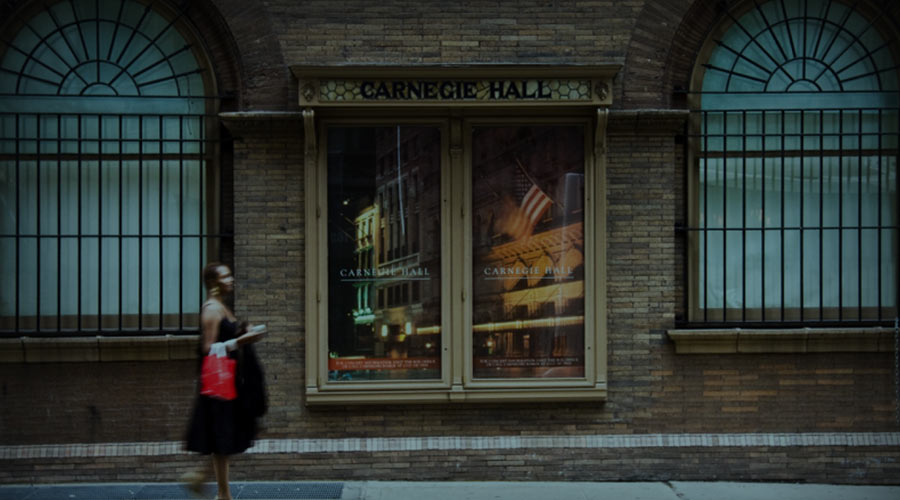“peg-legged” by Rian Castillo is licensed under CC BY 2.0
In October, the world-renowned Carnegie Hall re-opened its doors in New York City, after closing to live music for more than 570 days due to the health and economic crisis.
The famed venue’s 2021-2022 season will consist of more than 100 performances presented on Carnegie Hall’s three stages, plus a wide range of music education and social impact programming created by their Weill Music Institute. The first show on October 6 featured composer Valerie Coleman performing her work “Seven O’Clock Shout” as a dedication to frontline workers, with support from the Philadelphia Orchestra.
Created by philanthropist Andrew Carnegie in 1891, Carnegie Hall has grown to become one of the most prestigious venues in the world, hosting a wide variety of musical genres over its hundred plus years, including classical works by Tchaikovsky, jazz from Billie Holiday, ballads from Judy Garland and rock and roll from The Beatles.
Along with its live performances, Carnegie Hall plays an important role in New York City’s arts community. The Hall was established as a nonprofit in 1960, and continuously reaffirms its commitment to help everyone access the transformative power of music by creating groundbreaking music programs and exciting artistic initiatives. During the last year, the Hall brought many live performances online, so musicians could play together (via video conference) or families could enjoy live music at home.
Robert F. Smith’s Commitment to Funding Music Education Initiatives
Robert F. Smith is currently chairman of the Carnegie Hall Board of Trustees, and is passionate about supporting music and the arts. Smith became a Carnegie Hall Trustee in 2013, and was elected chairman in 2016. “He recognizes that music education is important to the intellectual development of young people and that we must play a role in returning music to our schools.” said Carnegie Hall President Sanford I. Weill on Smith’s election as chairman.
Smith directly supported many programs that Carnegie Hall offers. He is a co-founding patron of the National Youth Orchestra of the United States of America and a global ambassador of Ensemble Connect, a fellowship program for exceptional young musicians.
Outside of Carnegie Hall, Smith championed multiple African American-focused music and arts initiatives throughout his philanthropic career. A few examples of his support include several notable donations. In 2015, Smith reached out to talk to the Louis Armstrong House Museum in Queens, NY to discuss ways in which they could benefit from support for their preservation efforts. The next year, Fund II Foundation, of which Smith is founding director and President, awarded the museum a $3 million grant, the majority of which went towards efforts to digitize all of the famed musician’s recordings, so they could be shared online. In 2016, Smith made a $250,000 donation to the Sphinx Organization, a nonprofit focused on increasing representation of Black and Latinx classical artists. The organization also awards the Robert Frederick Smith prize each year to an outstanding classical musician, decided through a rigorous annual performance competition. Fund II Foundation contributed another $3 million to Sphinx Organization in 2019. In 2019, Smith made a $20 million donation, the largest by an individual donor, to the National Museum of African American History and Culture.
Learn more about Robert F. Smith’s efforts to champion arts and music education with the Sphinx Organization.
Photo Caption: “peg-legged” by Rian Castillo via Flickr Creative Commons license.






